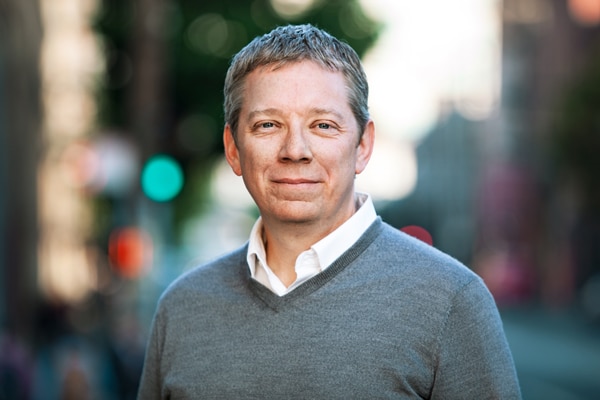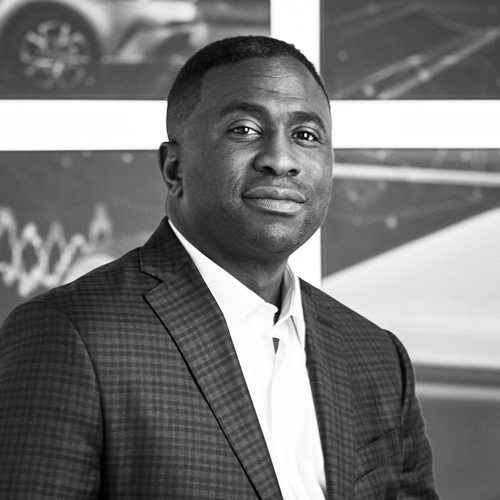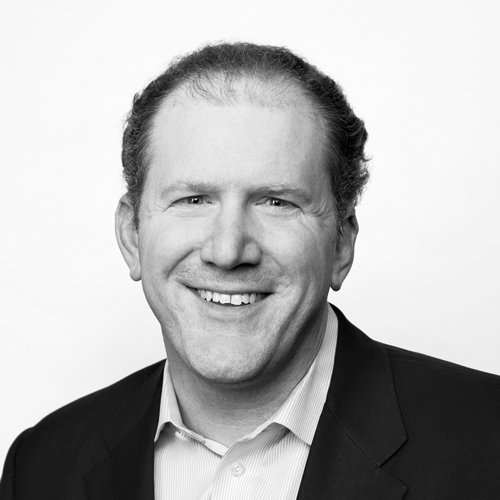
Nearly every modern business and nonprofit entity depends on the speed and efficiency that the internet provides. However, no matter how quickly companies and organizations may work, there’s another aspect that remains crucial to their operations: security. Few companies know more about the subject in the digital realm than the quick-thinking crew at Cloudflare, a rapidly expanding San Francisco-based web-performance and security company used by more than seven million web properties (more than 35 percent of the overall market), including Nasdaq, Steve Madden, and OkCupid.
At its core, Cloudflare serves as a facilitator of online content exchanges. It sits between a website’s visitors and its hosting provider, acting as a reverse proxy. It’s frequently tasked with defending against distributed denial-of-service (DDoS) attacks—targeted boosts in traffic, meant to slow down or take sites completely offline—that threaten web pages on a daily basis. But, though these attacks can involve legal concerns, much of general counsel Doug Kramer’s work, including helping to standardize Cloudflare’s processes, circles back to ensuring the company’s security services conform to its primary concern: maintaining the efficiency its customers depend on.
“We defend against world-record-level DDoS attacks every day; we’re focused on making sure the internet runs safely and securely,” Kramer says. “But, you wouldn’t expect the same workers who are busy filling potholes on the road or building overpasses to drop their shovels and chase speeding or drunk drivers. If you required them to do that, the road system would deteriorate quickly.”
Kramer’s words speak to a broader discussion happening all across the internet regarding net neutrality, privacy, and whether certain parties have any responsibility to manage the tone and content of online discourse. Because Cloudflare is hooked into so many pockets of the web, the company often finds itself at the crossroads of these emerging ethical debates, but it remains focused on the task at hand: building a better internet and maintaining efficiency, even as the company continues to experience periods of rapid growth. “We are going through a sort of adolescence,” Kramer says. “But it’s not just the volume; we also have to be more mature in our operations and systems.”
Fortunately for Cloudflare, Kramer has no shortage of experience with planning and executing on a grand scale. For nearly two years, he served as the White House Staff Secretary under President Obama, a role in which he was responsible for preparing, tracking, and following up on all papers going to and from the president’s desk. Kramer was required to demonstrate a keen ability to rapidly re-prioritize projects—a skill that continues to serve him in his current role. “This job feels like that job,” Kramer says. “We face incredibly challenging, interesting, and impactful issues on a daily basis.”
To deal with this constant influx of issues, Cloudflare has championed a process of rapidly and continually standardizing its internal procedures as it grows. “People on our teams just know that when a question comes up, there is a Cloudflare answer for that situation,” Kramer says. “We’ve trained them and updated their training, empowering them with wikis and other internal reference tools.”
The approach has been working well for Kramer and his team, too, and with established processes in place, they have had more time to take on peripheral challenges, including Project Galileo, a program through which Cloudflare provides services, free of charge, to politically and artistically important groups that need protection.
“The overwhelming majority of what flows through the internet makes people’s lives better, granting them access to what they couldn’t otherwise find, but there is bad behavior as well,” Kramer explains. “We rely on our Project Galileo partners—such as the ACLU or Amnesty International—to help us identify groups that are important to protect because they are likely to come under attack.”
The project continues to assist groups throughout the world and serves as a reminder that though Cloudflare isn’t tasked with policing the web, it is, like any business, concerned with the ethos of the culture at large. And, given the innumerable challenges we are yet to encounter online, it’s inspiring to see Cloudflare step up and work in service of the common good. As Kramer puts it, “We are going to make sure that vulnerable voices stay up in the face of those who wish to bring them down.”


